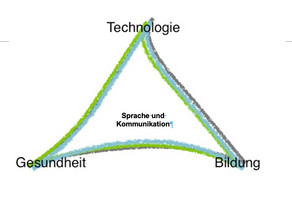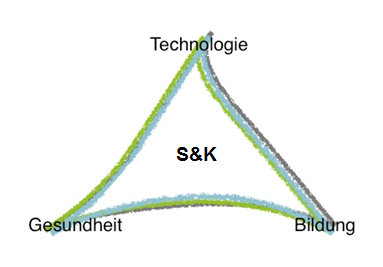Profile of the S&K department
This focus eliminates a previously counterproductive dichotomization in which linguistic-communicative phenomena are assigned either only to the health system or only to the education system.
Within the Faculty of Rehabilitation Sciences, the Department of Language and Communication is located in the two research clusters Education (b-ink) and Technology (tip). Our research programme also benefits from constructive collaboration with other disciplines at TU Dortmund University, external research institutions, schools and day-care centres, clinics, industry and end-user organizations, particularly in Europe.
Technology
At the same time, we focus on the development and application of customized technologies. In doing so, we research motivational, cognitive, affective and linguistic-communicative foundations for the development of assistive procedures. One focus is on the technology-based diagnosis of autism spectrum disorders and language development disorders.
Health
With our aim of contributing to the improvement of health and education through innovative technologies, we combine basic scientific and application-oriented perspectives in a cross-disciplinary field of language and communication based on internationally established professional concepts. This is intended to strengthen the connection between German research and the promotion of young talent and international standards. At the same time, the team's interdisciplinary composition helps to overcome professional or discipline-inherent distinctions and instead focus on scientific quality criteria.
Education
These are characterized by a modern empirical understanding of science, which is applied in evidence-based practice. Evidence-based practice requires sound methodological knowledge, which includes knowledge of various observation and survey methods as well as experimental research designs and specific expertise in studies with small samples. This requires not only methodologically rigorous standards, but also third-party-supported research in the laboratory and in the field. The Speech and Language Therapy Outpatient Clinic (SpA) at the Center for Counselling and Therapy (ZBT) at TU Dortmund University provides essential support here.





